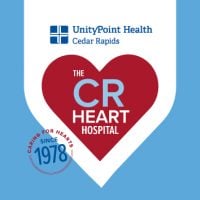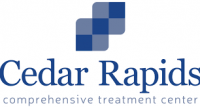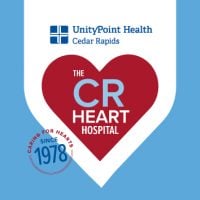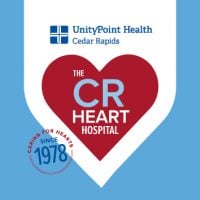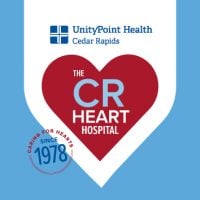Mercy Medical Center
Drug Rehab Center in Dubuque, Iowa
Mercy Medical Center in Dubuque, Iowa offers comprehensive care for alcohol and opioid addiction, including medical detoxification, outpatient and intensive outpatient services, continuing care, and aftercare support, using evidence-based methodologies and individualized treatment plans.
About Mercy Medical Center in Iowa
Mercy Medical Center in Dubuque, Iowa provides comprehensive care for those struggling with alcohol or opioid addiction. The center offers a range of levels of care from medical detoxification, to outpatient and intensive outpatient services, as well as continuing care and aftercare support. Treatment is tailored to each individual's needs, creating a treatment plan comprised of individual and family therapy, couples therapy, life skills coaching, and evidence-based methodologies such as motivational interviewing and Rational Emotive Behavior therapy (REBT). Additionally, the center offers Nicotine Replacement Therapy (NRT) for those who smoke.
Mercy Medical Center is accredited by the Joint Commission on Accreditation of Healthcare Organizations (JCAHO), the Substance Abuse & Mental Health Services Administration (SAMHSA), and holds a state license. Their dedicated staff provides compassionate care to ensure each individual is supported and successful in tackling the challenging journey of addiction recovery.
Genders
Ages
Modality
Additional
Accreditations
State License
SAMHSA

JCAHO
Conditions and Issues Treated
Opioid addiction is a common form of addiction, often caused by prescription drugs that are abused. Addiction is treated by detoxifying the body and following up with therapies to correct behavior and target the root of the problem.
Most opioid addiction begins with patients being prescribed painkillers after an injury or surgery. The body becomes used to the chemicals in these medications and soon no longer responds to their presence. As a result, addicts seek out stronger opiate-based medications like Oxycodone to compensate for the lack of effectiveness.
The most dangerous aspect is that these addictive behaviors often get carried over onto illicit drugs like heroin, which are increasingly potent and result in lower life expectancies.
Levels of Care Offered
This center offers a variety of custom treatment tailored to individual recovery. Currently available are Aftercare Support, Detox, Intensive Outpatient, Outpatient, with additional therapies available as listed below.
Detox is the body’s process of removing toxins. In substance abuse, detox refers to the process of getting rid of drugs already present in the system once the patient stops further intake. Detox is the initial recovery step. Physiological drug dependence over time can lead to symptoms of withdrawal. Depending on the symptom severity, the detox process is managed either medically or clinically. While medically assisted detox relies on specific medicines, clinical or social detox relies on providing the patient with emotional and psychological support.
Intensive Outpatient Programs (IOPs) are a form of drug treatment that allows individuals to receive the therapy they need while remaining in their homes and community. IOPs allow for the flexibility to continue working and living at home while still meeting treatment demands.
Outpatient treatment programs are less intensive than an inpatient program. Participants live at home while working or going to school. Benefits include being able to continue relationships with family, friends, and work/studies. Treatment includes educating patient on addiction to drugs, medication, and counseling. Benefits include being able to continue relationships with family, friends, and work/studies. Treatment includes educating patient on addiction to drugs, medication, and counseling. Counseling sessions are for either individual or group.
Aftercare Support in drug rehab is crucial because it helps people stay sober after treatment. The benefits of Aftercare Support are that it provides a pathway that will help people get sober for life. It supports healing at all levels, physical, mental, emotional, and spiritual.
Therapies & Programs
Individualized Treatment is essential because it gives addicts the ability to participate in a program that meets their unique needs. An addict should work with professionals who understand what they’re going through, especially if the addict is actively using.
Trying to find a treatment program that meets your needs can be challenging. It’s even more complicated if you don’t know what kind of treatment you need. Being able to have professionals who are experienced with treating your situation is key to getting sober. Finding the right treatment program for an addict is difficult, but it’s even harder without communicating with those who have experience treating your specific situation.
Couples therapy is beneficial for couples in which at least one partner has a substance use disorder. This type of therapy can help partners improve communication skills, which is an important factor in a healthy relationship. It can also help partners better understand one another so they have a greater understanding of how the other partner may be feeling.
Benefits of couples therapy include:
- Improvement in communication skills
- Increased understanding of the dynamics within a relationship
- Increased sense of support and trust in the relationship
- Better teamwork between partners/increased willingness to listen and work together
- Enhanced tolerance of each other’s shortcomings
- Improved ability to have open, honest communication with each other
Family dysfunction can often be the underlying cause of substance abuse. To get sober, you need to find a different way to cope with the pain in your life. Family therapy can help you and your family deal with old issues that may trigger substance abuse. It will help everyone understand why each member of the family feels and acts the way they do. It can give everyone new tools to manage their emotions so that they don’t want to drink or do drugs.
A person looking for drug recovery should know that group therapy is an essential tool. Group therapy provides accountability and friendship to people with addiction. It is recommended as a lifetime treatment habit. Group therapy occurs in a group setting as opposed to a one-on-one setting. It benefits patients by providing a feeling of support and letting them know they are not alone. Patients at Mercy Medical Center also learn to build trust and understanding and gain perspective through discussions.
Addicts seeking sobriety can find quick results with Rational Emotional Behavior Therapy. This type of counseling offered by Mercy Medical Center replaces negative and self-limiting thoughts with positive and productive behaviors. This allows addicts to move forward without having to deal with ongoing treatment throughout their lives.
Life skills training is beneficial for addicts in recovery because it helps them learn how to take care of themselves and improve their quality of life, which can promote feelings of purpose and motivation.
This type of treatment works by teaching individuals life-enhancing skills that support positive living, including:
- Healthy lifestyle habits
- Skills to effectively manage stress
- Effective communication skills to help them get their needs met without turning to drugs or alcohol
- Money management and budgeting skills so they can continue to take care of themselves after treatment ends.
Additional Details
Specifics, location, and helpful extra information.
Dubuque, Iowa 52001 Phone Number(563) 589-8925 Meta DetailsUpdated November 25, 2023
Staff Verified
Mercy Medical Center Patient Reviews
There are no reviews yet. Be the first one to write one.
Dubuque, Iowa Addiction Information
Iowa ranks 2nd lowest in the nation for illicit drug use, but 12% of its residents are still using these drugs every single year. Methamphetamines account for more than 90% of all drug-related prison admissions in Iowa. Alcohol is the most widely abused substance in the state, with 23% of residents admitting to heavy drinking.
Dubuque is a city in Iowa with a population of over 58,000 people. Like most cities, Dubuque has its share of drug abuse problems. Heroin and methamphetamine are the drugs of choice in the area, and they are causing a lot of harm to the community. Treatment types include cognitive-behavioral therapy, dialectical behavior therapy, and acceptance and commitment therapy.
Treatment in Nearby Cities
- Humboldt, IA (180.9 mi.)
- Sioux Center, IA (282.1 mi.)
- Sioux City, IA (292.2 mi.)
- Denison, IA (241.9 mi.)
- Harlan, IA (245.7 mi.)
Centers near Mercy Medical Center
The facility name, logo and brand are the property and registered trademarks of Mercy Medical Center, and are being used for identification and informational purposes only. Use of these names, logos and brands shall not imply endorsement. RehabNow.org is not affiliated with or sponsored by Mercy Medical Center.





